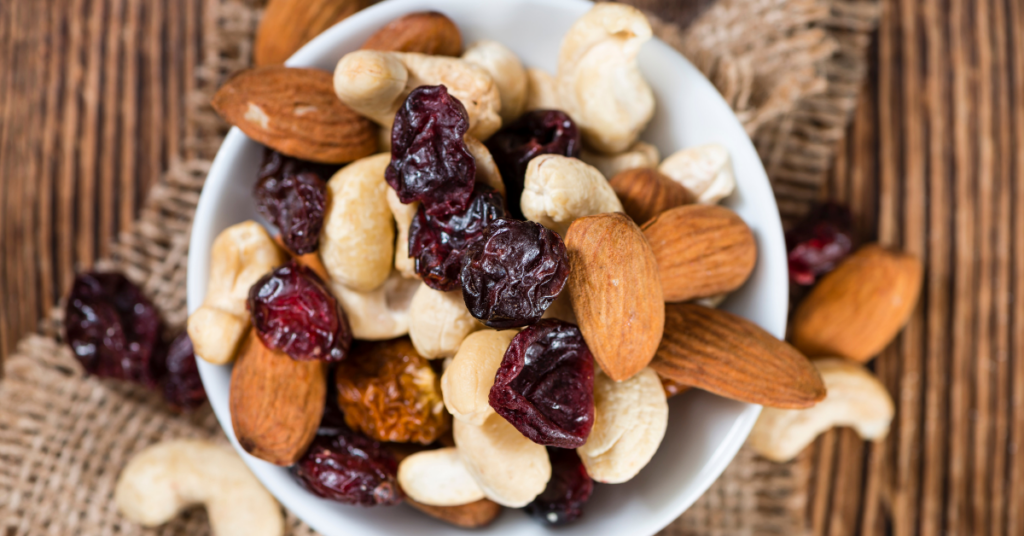
Article at a Glance:
- Plant-based diets are safe and beneficial for both mom and baby during pregnancy.
- Certain nutrients may be harder to get while eating plant-based, so take extra care when planning your meals.
Benefits of a Plant-Based Diet During Pregnancy
A balanced, plant-based diet offers many health benefits to both mothers and babies. Vegetarian or vegan diets have been found to lower the risk of preeclampsia, gestational diabetes, and preterm delivery. This is likely due to the high intake of fiber and low intake of fat (particularly saturated) seen in plant-based diets.
What a mother eats during pregnancy can impact more than just the baby’s health. Research has found that infants are able to “taste” flavors as early as 12 weeks of pregnancy. Infants exposed to vegetables in the womb, specifically kale and carrots, were more likely to eat them as toddlers.
Key Nutrients to Focus on During a Plant-Based Pregnancy
All moms-to-be need extra calories and nutrients while pregnant. On average, a pregnant woman needs about 300 extra calories per day to support healthy weight gain and fetal growth. Some key nutrients are harder to get on a plant-based diet, so mamas should take extra care to make sure they are meeting intake requirements.
Iron
Iron is a micronutrient needed to make a protein called hemoglobin. Hemoglobin is found in red blood cells, where it transports oxygen throughout the body.
During pregnancy, a mom’s blood volume increases so oxygen can be delivered to the baby. This dramatically increases iron needs, and many women fall short of the requirement. Pregnant women need around 27 milligrams of iron during pregnancy.
Great plant-based sources of iron include:
- Beans, peas, and lentils
- Dark, leafy green vegetables (think spinach or kale)
- Dried fruits
- Whole-grains like breads, rice, and quinoa
- Nuts and seeds
To enhance the absorption of heme (plant-based) iron, eat iron sources with vitamin C sources (like citrus fruits, tomatoes, peppers, strawberries, or broccoli).
Calcium
Needed for bone growth, muscle movement, and hormone function, calcium is the most abundant mineral in our bodies. We can’t make calcium, so pregnant women should aim to eat about 1,200 mg per day. Adequate calcium prevents problems like osteoporosis and preeclampsia for the mom and helps the baby’s bones, teeth, and heart develop.
Foods rich in calcium include:
- Dairy products like milk, cheese, and yogurt
- Soy foods like tofu and tempeh
- Beans, peas, and lentils
- Almonds
- Chia and sesame seeds
- Spinach, turnip, and mustard greens
Vitamin B12
Vitamin B12 is important for red blood cell formation, nervous system regulation, and DNA synthesis. Deficiency during pregnancy can lead to problems with fetal development. Animal products are the usual source of vitamin B12, so plant-based mamas should be extra careful to make sure they are getting enough.
Vitamin B12 can be found in:
- Fortified foods like cereals and plant-based milk
- Fortified nutritional yeast
- Dairy products
- Mushrooms
- Tempeh
However, meeting vitamin B12 needs from diet alone is challenging, pregnant or not. It’s best to add a vitamin B12 supplement daily to ensure needs are met.
Protein
Protein needs increase during pregnancy to help the fetus and placenta grow. Women need about 0.5 grams of protein per pound of body weight. This means a pregnant woman weighing 150 pounds would need 75 grams of protein per day.
Great plant-based protein sources include:
- LiveComplete protein shake
- Tofu, edamame, and tempeh
- Beans, peas, and lentils
- Greek yogurt or cottage cheese
- Chia and hemp seeds
Do You Need Supplements for a Plant-Based Pregnancy?
Eating a healthy, balanced diet is the best way to get the nutrients your body needs. However, during pregnancy, our bodies need more of certain vitamins and minerals to help the baby grow. Prenatal vitamins are designed to provide extra key nutrients and fill in any nutritional gaps. Work with your registered dietitian to find the best prenatal vitamins for you.
LiveComplete Takeaways
Following a plant–based diet is a healthy and delicious way to support you and your baby during pregnancy. Ensure you are getting key nutrients from a wide variety of whole and minimally processed foods, appropriate supplementation, and communicating with your dietitian or other trusted healthcare provider for personalized guidance.
Sources:
- Cruz-Rodríguez, J., Díaz-López, A., Canals-Sans, J., & Arija, V. (2023). Maternal Vitamin B12 Status during Pregnancy and Early Infant Neurodevelopment: The ECLIPSES Study. https://doi.org/10.3390/nu15061529
- Georgieff K (2020). Iron deficiency in pregnancy. https://www.sciencedirect.com/science/article/abs/pii/S0002937820303288#preview-section-cited-by
- Guideline: Calcium Supplementation in Pregnant Women. Geneva: World Health Organization; 2013. Background. Available from: https://www.ncbi.nlm.nih.gov/books/NBK154181/
- Kominiarek, M. A., & Rajan, P. (2016). Nutrition Recommendations in Pregnancy and Lactation. https://doi.org/10.1016/j.mcna.2016.06.004
- Murphy, M. M., Higgins, K. A., Bi, X., & Barraj, L. M. (2021). Adequacy and Sources of Protein Intake among Pregnant Women in the United States, NHANES 2003-2012. https://doi.org/10.3390/nu13030795
- Sebastiani, G et al., (2019). The Effects of Vegetarian and Vegan Diet during Pregnancy on the Health of Mothers and Offspring. https://pmc.ncbi.nlm.nih.gov/articles/PMC6470702/
- Ustun, B., Reissland, N., Covey, J., Schaal, B., & Blissett, J. (2022). Flavor Sensing in Utero and Emerging Discriminative Behaviors in the Human Fetus. https://journals.sagepub.com/doi/10.1177/09567976221105460



